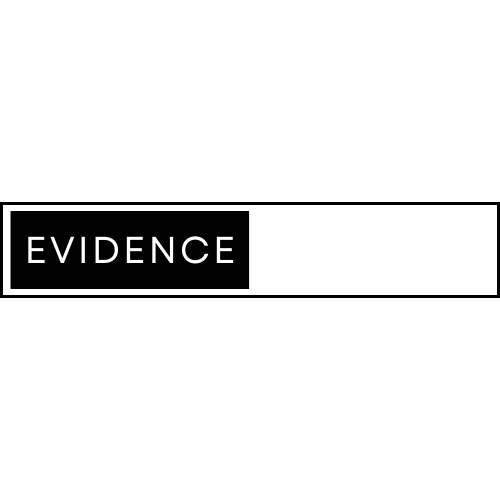Outside Urban Comfort Zones: Addressing Mental Health Access in Rural Communities
David A. Songco, Psy.D. LP


Devil’s Lake State Park, Sauk County, Wisconsin – Photo by Ryan Afflerbaugh | Imaged Used with permission under Creative Commons License
This past weekend I went camping with my family to an area about an hour outside of Milwaukee, Wisconsin. The trees were lush, the air was clear, and the birds sang throughout the day. As we drove through these smaller, rural towns and communities (some places “unincorporated”), I could not help but think how these spaces are used as “urban retreats” and are often overlooked regarding resources and infrastructure. While these communities brim with beauty and often tight-knit relationships, they also face significant challenges in accessing mental health care. The lack of mental health services in rural areas is not just a matter of inconvenience—it’s a critical diversity, equity, and inclusion (DEI) issue that requires immediate attention. Group psychotherapy, with its unique benefits and communal nature, presents an invaluable opportunity to bridge this gap and foster a more inclusive approach to mental health care.
The Rural Mental Health Crisis
Rural communities are often characterized by limited access to healthcare resources, and mental health services are no exception. According to the National Rural Health Association1, there are far fewer mental health providers per capita in rural areas compared to urban settings. This disparity leaves many residents without the necessary support to manage mental health conditions, leading to higher rates of untreated mental illnesses, substance abuse, and suicide.
The reasons for this scarcity are multifaceted. Geographic isolation, transportation barriers, and a shortage of healthcare professionals all contribute to the mental health care deficit. Moreover, stigma surrounding mental health issues is often more pronounced in rural areas, discouraging individuals from seeking help.2
Diversity, Equity, and Inclusion in Rural Mental Health
The lack of access to mental health care in rural communities is fundamentally a DEI issue. These areas often include marginalized populations, such as low-income families, agricultural workers, and Indigenous peoples, who face additional barriers to receiving care. The intersection of socioeconomic status, cultural background, and geographic location exacerbates the inequities in mental health access and outcomes2.
Addressing mental health disparities in rural areas aligns with the broader goals of DEI by ensuring that all individuals, regardless of their location or background, have equitable access to essential services. It involves recognizing and dismantling the systemic barriers that prevent marginalized populations from receiving the care they need3.
Group Psychotherapy: A Pathway to Inclusion
Group psychotherapy offers a promising solution to the mental health care crisis in rural communities. Specifically, group psychotherapy offers:
- Cost-Effective Care: In rural areas where mental health professionals are scarce, group therapy maximizes the reach of each provider. By treating multiple individuals simultaneously, therapists can offer more frequent sessions and reduce the cost per patient, making therapy more accessible to those with limited financial resources.
- Community Building: Group therapy can break down the isolation felt by many rural residents. Participants often find solace in knowing they are not alone in their struggles, which can be particularly powerful in close-knit rural communities. This sense of solidarity can reduce stigma and encourage more people to seek help.
- Culturally Relevant Support: Group therapy allows for the inclusion of culturally relevant practices and discussions. Facilitators can tailor sessions to address the specific needs and experiences of the group, making the therapy more effective and resonant with participants’ lives.
Telehealth: Reducing Barriers to Access
Not many positive things came from COVID-19 though in terms of additional avenues of service delivery, telehealth may be considered one “positive” at least in the delivery of mental health care. The utilization of telehealth platforms presents an opportunity to reduce barriers to mental health care in rural communities. Telehealth and Group Teletherapy enables individuals to receive therapy from the comfort of their homes, bypassing the challenges of geographic isolation and transportation difficulties. It also allows for greater flexibility in scheduling, which is particularly beneficial for those with demanding agricultural work schedules or caregiving responsibilities. By leveraging telehealth, rural residents can access a wider range of mental health professionals, including those with specialized expertise not available locally. This approach not only enhances accessibility but also normalizes mental health care, reducing stigma and encouraging more people to seek the support they need. The integration of telehealth with group psychotherapy can create a hybrid model of care that combines the benefits of both, ensuring comprehensive and inclusive mental health support for rural communities.4
Advocacy for Access and Reimbursement
To fully realize the potential of group psychotherapy in rural areas, there is a crucial need for advocacy. Psychologists and mental health professionals must champion policies that expand access to group therapy and ensure fair reimbursement for these services:
- Policy Advocacy: Advocacy efforts should focus on increasing funding for rural mental health services and incentivizing mental health professionals to practice in underserved areas. Policymakers need to recognize the unique challenges faced by rural communities and allocate resources accordingly.5
- Insurance Reimbursement: Ensuring that group therapy is adequately reimbursed by insurance providers is essential. Advocacy should aim to standardize reimbursement rates for group therapy sessions, making it financially viable for both providers and patients.
- Training and Education: Expanding training programs for psychologists to include a focus on rural mental health and group therapy can help build a workforce equipped to meet the needs of these communities. Continuing education opportunities should emphasize the importance of culturally competent care and DEI principles.
Group psychotherapy presents a practical solution for addressing mental health disparities in rural communities. Promoting this therapeutic approach can significantly advance the inclusivity and equity of mental health care. Moving forward, dedicated advocacy is necessary to expand access, secure fair reimbursement, and develop a workforce that can effectively serve the unique needs of rural populations.
A psychologist’s role extends beyond the therapy room. We are advocates, educators, and agents of change. By embracing the power of group psychotherapy and championing policies that support rural mental health, we can help create a future where every individual, regardless of where they live, has access to the care they deserve.
If you are doing work within rural communities, let the Division know! You can always reach me at dsongco@mcw.edu or attend an upcoming DEIB Committee meeting.
References
- National Rural Health Association. (n.d.). About rural health care. Retrieved June 2, 2024, from https://www.ruralhealth.us/about-us/about-rural-health-care
- Deloitte Insights. (2023). Mental health equity and creating an accessible system. Retrieved June 2, 2024, from https://www2.deloitte.com/us/en/insights/industry/public-sector/mental-health-equity-and-creating-an-accessible-system.html
- Klein, S., & Hostetter, M. (2023, February 16). Filling behavioral health gaps in rural communities. Commonwealth Fund. Retrieved June 3, 2024, from https://www.commonwealthfund.org/publications/2023/feb/filling-behavioral-health-gaps-rural-communities
- Whittingham, M., Marmarosh, C. L., Mallow, P., & Scherer, M. (2023). Mental health care equity and access: A group therapy solution. American Psychologist, 78(2), 119–133. https://doi.org/10.1037/amp0001078
- Centers for Medicare & Medicaid Services. (2023). FY2023 Advancing Health Equity RTGI Communities Year in Review.

